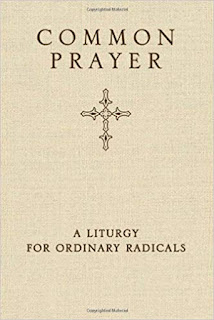The Daily Bible Readings
FRIDAY, August 21, 2020
Psalm 124; Genesis 49:29—50:14; 2 Corinthians 10:12-18
The Holy Bible, King James Version (KJV)
Today's Verse-of-the-Day: Psalm 42:8
Yet the Lord will command his lovingkindness in the day time, and in the night his song shall be with me, and my prayer unto the God of my life.
Today's Readings:
We have escaped like a bird
1 If it had not been the Lord who was on our side, now may Israel say;
2 If it had not been the Lord who was on our side, when men rose up against us:
3 Then they had swallowed us up quick, when their wrath was kindled against us:
4 Then the waters had overwhelmed us, the stream had gone over our soul:
5 Then the proud waters had gone over our soul.
6 Blessed be the Lord, who hath not given us as a prey to their teeth.
7 Our soul is escaped as a bird out of the snare of the fowlers: the snare is broken, and we are escaped.
8 Our help is in the name of the Lord, who made heaven and earth.
Jacob’s death and burial
49:29 And he charged them, and said unto them, I am to be gathered unto my people: bury me with my fathers in the cave that is in the field of Ephron the Hittite,
30 In the cave that is in the field of Machpelah, which is before Mamre, in the land of Canaan, which Abraham bought with the field of Ephron the Hittite for a possession of a buryingplace.
31 There they buried Abraham and Sarah his wife; there they buried Isaac and Rebekah his wife; and there I buried Leah.
32 The purchase of the field and of the cave that is therein was from the children of Heth.
33 And when Jacob had made an end of commanding his sons, he gathered up his feet into the bed, and yielded up the ghost, and was gathered unto his people.
50:1 And Joseph fell upon his father's face, and wept upon him, and kissed him.
2 And Joseph commanded his servants the physicians to embalm his father: and the physicians embalmed Israel.
3 And forty days were fulfilled for him; for so are fulfilled the days of those which are embalmed: and the Egyptians mourned for him threescore and ten days.
4 And when the days of his mourning were past, Joseph spake unto the house of Pharaoh, saying, If now I have found grace in your eyes, speak, I pray you, in the ears of Pharaoh, saying,
5 My father made me swear, saying, Lo, I die: in my grave which I have digged for me in the land of Canaan, there shalt thou bury me. Now therefore let me go up, I pray thee, and bury my father, and I will come again.
6 And Pharaoh said, Go up, and bury thy father, according as he made thee swear.
7 And Joseph went up to bury his father: and with him went up all the servants of Pharaoh, the elders of his house, and all the elders of the land of Egypt,
8 And all the house of Joseph, and his brethren, and his father's house: only their little ones, and their flocks, and their herds, they left in the land of Goshen.
9 And there went up with him both chariots and horsemen: and it was a very great company.
10 And they came to the threshingfloor of Atad, which is beyond Jordan, and there they mourned with a great and very sore lamentation: and he made a mourning for his father seven days.
11 And when the inhabitants of the land, the Canaanites, saw the mourning in the floor of Atad, they said, This is a grievous mourning to the Egyptians: wherefore the name of it was called Abelmizraim, which is beyond Jordan.
12 And his sons did unto him according as he commanded them:
13 For his sons carried him into the land of Canaan, and buried him in the cave of the field of Machpelah, which Abraham bought with the field for a possession of a buryingplace of Ephron the Hittite, before Mamre.
14 And Joseph returned into Egypt, he, and his brethren, and all that went up with him to bury his father, after he had buried his father.
Let those who boast boast in the Lord
10:12 For we dare not make ourselves of the number, or compare ourselves with some that commend themselves: but they measuring themselves by themselves, and comparing themselves among themselves, are not wise.
13 But we will not boast of things without our measure, but according to the measure of the rule which God hath distributed to us, a measure to reach even unto you.
14 For we stretch not ourselves beyond our measure, as though we reached not unto you: for we are come as far as to you also in preaching the gospel of Christ:
15 Not boasting of things without our measure, that is, of other men's labours; but having hope, when your faith is increased, that we shall be enlarged by you according to our rule abundantly,
16 To preach the gospel in the regions beyond you, and not to boast in another man's line of things made ready to our hand.
17 But he that glorieth, let him glory in the Lord.
18 For not he that commendeth himself is approved, but whom the Lord commendeth.
Optional parts of the readings are set off in [square brackets.]
The Bible texts of the Old Testament, Epistle, and Gospel lessons are from The Holy Bible, King James Version (KJV).
The Daily Bible Readings are selected from the Revised Common Lectionary Daily Readings, a three-year cyclical lectionary. We are currently in Year A. Beginning with the first Sunday of Advent in 2020, we will be in Year B. The year which ended at Advent 2019 was Year C. These readings complement the Sunday and festival readings: Thursday through Saturday readings help prepare the reader for the Sunday ahead; Monday through Wednesday readings help the reader reflect and digest what they heard in worship. Revised Common Lectionary Daily Readings, copyright © 2005 Consultation on Common Texts. www.commontexts.org
The Daily Bible Readings for FRIDAY, August 21, 2020
Psalm 124; Genesis 49:29—50:14; 2 Corinthians 10:12-18 (KJV)









